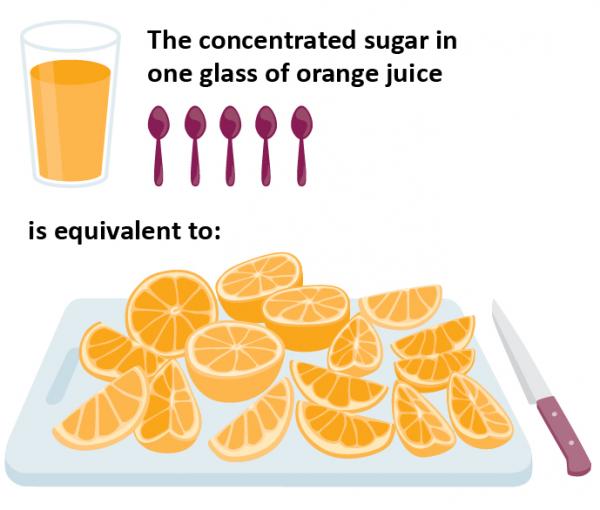Sugar metabolism
Sugar metabolism is the process by which energy contained in the foods that we eat is made available as fuel for the body. The body’s cells can use glucose directly for energy, and most cells can also use fatty acids for energy. Glucose and fructose are metabolised differently, and when they are consumed in excess they may have different implications for health.
Looking at glucose first – when food is consumed, there is a corresponding rise and subsequent fall in blood glucose level, as glucose is absorbed from the gastrointestinal tract into the blood and then taken up into the cells in the body.
Glucose in the blood stimulates the pancreas to release insulin, which then triggers uptake of glucose by cells in the body (e.g. muscle cells) causing blood glucose to return to base levels. Insulin will turn off fat burning and promote glucose burning as the body’s primary fuel source. Any excess glucose ends up being stored as glycogen in the muscles, and it can also be stored as lipid in the fat tissue.
Fructose is also taken up into the blood from the gut, but in this case, the liver serves as a pre-processing organ that can convert fructose to glucose or fat. The liver can release the glucose and fat into the blood or store it as glycogen or fat depots, which, if sugars are consumed in excess, may lead to fatty liver disease and also increase risk for diabetes and cardiovascular disease.
There are also some noted interaction effects between glucose and fructose, in that glucose enables fructose absorption from the gut, while fructose can accelerate glucose uptake and storage in the liver.
If the sugar comes with its inherent fibre (as with whole fruit) then up to 30% of this sugar will not be absorbed. Instead, it will be metabolised by the microbes in the gut, which may improve microbial diversity and help prevent disease. The fibre will also mean a slower rise in blood glucose, which has shown to have positive health effects.
It is easy to over-consume sugar

It is easy to over-consume sugar in juice and sweet drinks, as they contain mostly water and sugar. One glass of orange juice can contain concentrated sugar from five or six whole oranges. And while it is easy to drink that much sugar, you would be less likely to eat that many oranges in one go.
Fizzy drinks do not make you feel full as quickly as foods do. This makes them easy to over-consume. And a small fizzy drink contains nine teaspoons of added sugar, so drinking just one can means that you have almost reached your recommended maximum intake for that whole day.
